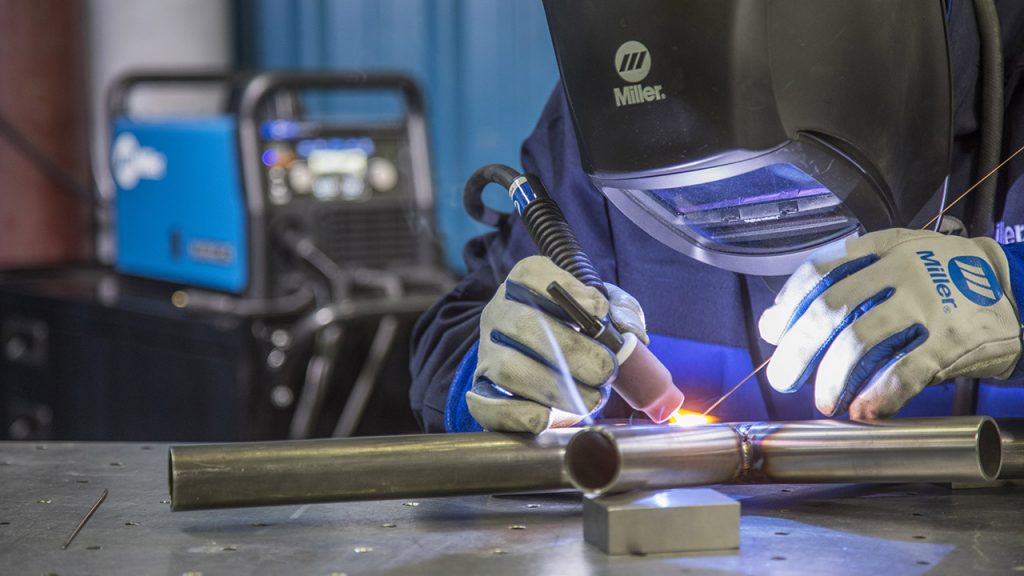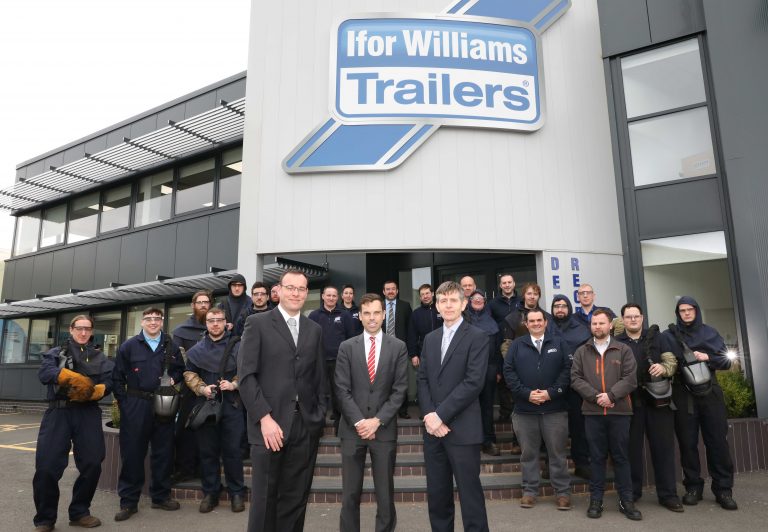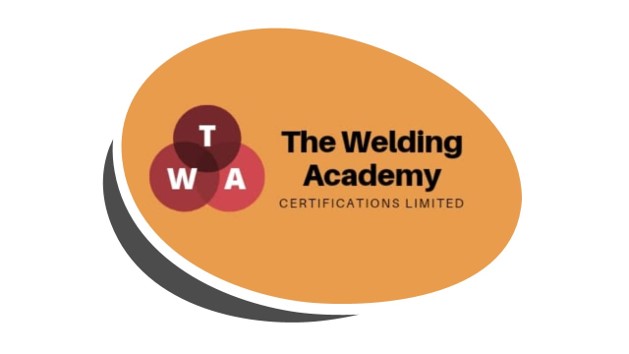Coded Welding

As a qualified coded welder, you will possess the skills required to work in some of the most highly regulated sectors and on a range of safety-critical applications, pressure vessels and pressure pipework.
A coded welder is a terminology used for an approved welder, but the term is not recognised in any code, qualification or standard. It usually describes a time served and skilled welders who have completed a welder approval test that has been approved to a specification or standard e.g. ASME IX.
For the UK approvals are conducted to BS EN ISO standards and for the USA uses the ASME IX and AWS standard.
Applying standards/codes of practice ensure that a structure or welded joint has an acceptable level of quality and integrity required for the job. As a welder fabricator in the UK you will be working to one of the following:
- National British Standard (BS)
- European British Standard European Standard (BS EN)
- US American Welding Society (AWS) and American Society of Mechanical Engineers (ASME)
- International Standards Organisation (ISO)
These can be applied to specific industries and job roles examples of welder approval standards and their applications are listed below:
- Welder Approvals for Pressure vessels – BS EN ISO 9606, ASME Section IX
- Welder Approvals for Process pipework – BS 4872, BS EN ISO 9606, ASME Section IX
- Welder Approvals for Structural fabrication – BS EN 287, BS 4872, BS EN ISO 9606, AWS D1.1/ D1.2/ D1.6
- Welder Approvals for Storage tanks – BS 4872, BS EN ISO 9606, AWS D1.1/ D1.2/ D1.6
Welding approval test are carried out by a competent welders and the quality of the weld produced are assessed using non-destructive (X-ray, UT) and mechanical (Bend Tests) testing techniques. Approval tests examine a welder’s skill and ability under pressure. Testing demonstrates that a welding procedure has been designed to produce a welded joint that will meet the mechanical and quality requirements for the job.
Usually, a welding specification is provided for a job, you will be tested to that specification in order to qualify to that specification (thus becoming a coded welder).
ISO 9606 and ASME Section IX are appropriate for welders working on pressure vessel, piping and off-shore structures. They are also used for other products where the consequences of failure, stress levels or complexity mean that a high level of welded joint integrity is essential such as structual steel.
In less demanding situations, such as small to medium building frames and general light structural and non-structural work, an approved welding procedure may not be necessary. However, to ensure an adequate level of skill, welders are often approved to a less stringent standard, eg BS 4872.
Being Coded in a certain specification does not mean you are qualified in another, even though you are Coded. Each specification requires welder training, welding tests and examination, becoming a multi-coded welder.
The Welding Academy at Ifor Williams - Trailer firm creates 30 jobs with new welding academy

The training school at Ifor Williams Trailers was officially opened by Clwyd South AM Ken Skates, who is also the Welsh Government’s Economy and Transport Minister.
The company took the decision to train their own welders at a time when orders for their market-leading trailers are soaring.
The iconic Welsh brand was established in 1958 in Cynwyd, near Corwen, where it still has a factory.
The firm also has manufacturing sites in Corwen, Ruthin, Sandycroft and on Deeside Industrial Estate where it employs a total of more than 500 people.
The 30 welding jobs are on top of the 100 posts created at the new £5 million Sandycroft factory which opened in November 2017 and as part of the company’s ongoing recruitment drive.
As well as having 50 UK trailer outlets, the company has an international network of distributors as far afield as Australia and New Zealand.
Mr Skates said: “Setting up the Weld Academy was a brilliant idea.
“Today I’ve learned that new welders can acquire all of the knowledge and skills required to then go on to the shop floor to build the trailers, to weld them together and to produce what are incredibly important high-quality goods in the international market.
“It’s music to my ears to hear about a world-class company like Ifor Williams Trailers investing in training and development, making sure that the employees here are equipped with the skills that will make sure they stay here for a good length of time to come.
“Ifor Williams Trailers is a flag-carrier internationally for Wales, and for the UK it’s got to be said. It’s a jewel in the crown of the Welsh economy.
“I’m incredibly proud the company is based here in North Wales. It employs a huge number of loyal, dedicated, skilled people, and it’s an incredible success, so we must never stop cheering.
“There is a hunger for further continuous improvement and research and development and innovation, and that’s exactly what we want to see across the Welsh economy.
“My last visit was six months ago to the launch of two new horseboxes at the Sandycroft site, and Ifor Williams Trailers is clearly going from strength to strength. “It’s an absolute privilege and honour to be able to work with such a company; especially during these difficult times.”
Project manager Nick Backstrom, who runs the Weld Academy based at the Corwen factory, said: “This is all about getting the local workforce skilled in line with the bespoke needs of Ifor Williams Trailers.
“It’s a really intensive course that can take someone from zero skills to being production-ready tailored to the needs of the business.
“They’re putting in close to a 150 weld hour behind the mask before they’re released.
“If they pass the test at the end of the course, they will get a job and shadow an experienced welder before they work on their own.”
Among those who have made the grade is Nathan Jones, 29, from Ruthin, who said: “I wanted to further my career and learn more skills and it’s been really good because I have learned so much.
“I tell my friends that they need to apply because it’s such a good opportunity and it’s good company to work for.
“I’m proud when I see the fruits of my labour being towed out on the roads and my children are also proud every time they see one of the company’s trailers.
Fellow Weld Academy graduate Matthew Cooke, 38, from Bala, added: “The Weld Academy was good, and it was good to be taught by highly skilled people.
“I learned a lot, and it’s given me a real insight into the quality of the trailers here.
It was a sentiment echoed by trainee team leader Zenia Durek, who joined the company last June.
She said: “Things are going absolutely brilliantly with the academy and we’re really enjoying it.
“It’s nice to see a whole range of ages coming through as well with people finding a new career. They come out feeling enthused.”
Richard Bull, Head of Components at Ifor Williams Trailers, said: “We are looking for people who will buy into our ethos of producing high-quality trailers that combine high technology with strength, durability, ease of maintenance and value for money.
“As specialists in trailer design and engineering, we have continued to set the standard both in the UK and throughout much of Europe and across the world.
“It’s important that we recruit the right people so we can continue to set the benchmark as trailer manufacturers.”
